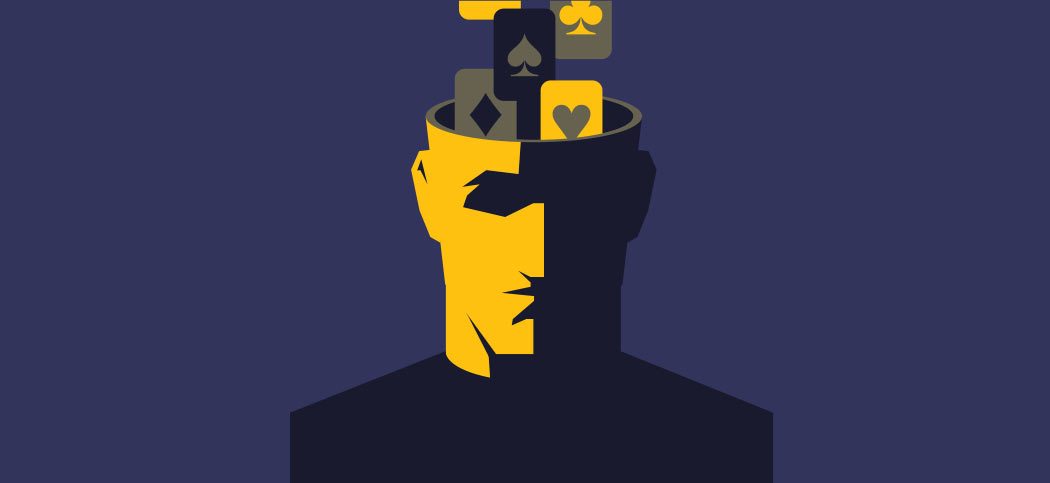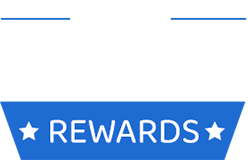How To Detect A Developing Gambling Problem - And How To Help

Most people who gamble recreationally will never develop a gambling problem. However, for some individuals, gambling can become compulsive and addictive over time. In the early stages of gambling addiction, there are some subtle red flags that indicate a gambling habit may be turning unhealthy or risky. Identifying early warning signs can help catch a problem before it spirals out of control.
Gambling addiction is too often ignored in its early stages, when it is most tractable. This article will help you to spot problem indicators, and guide you through the process of early intervention.
Advertiser Disclosure
By accessing and depositing through our provided links, we may receive a commission at no extra cost to you. Learn More.
✖How We Rank Casino Bonuses using BonusRank
Not just any online casino makes the grade. We have a strict process for testing online casinos to determine whether we even list them.
Once we approve a casino, our team of experts starts the real work. And it's thorough. Our unique BonusRank algorithm considers all the important aspects of a bonus and calculates a score that allows meaningful and direct comparison between bonuses. You don't have to guess, our rating scale will clearly show you if a bonus is great, good enough, or should be avoided.
Read more about our BonusRank system and how we make bonus comparisons.
✖Understanding A Developing Gambling Addiction
Gambling addiction often starts small before growing into a serious problem. This guide offers advice on spotting the early red flags, approaching someone compassionately, and getting them help before their addiction worsens.
While NoDepositRewards.org only works with casinos that employ robust responsible gaming protocols, addiction can still bloom.
The early stages of gambling addiction occur when recreational gambling starts becoming more frequent and compulsive. An individual's gambling habits begin impacting their finances, relationships, work, or health, but have not yet caused irrevocable damage. These early red flags are crucial to catch, because it is much easier to intervene and treat gambling addiction before it spirals out of control.
Early-Stage Gambling Addiction Vs Full Blown Gambling Addiction
In the early stages, the person may gamble more often and bet larger amounts, but still have control over their behavior. They are likely to be in denial about having a problem.
In full-blown addiction, the individual has lost control, and gambling takes priority above all else, with devastating consequences. Early intervention can prevent someone from reaching the desperate point of stealing or going bankrupt to fund their addiction.
The Signs Of A Developing Gambling Problem
It's important to know the subtle signs that recreational gambling may be turning into an unhealthy addiction. The sooner this risk is identified, the sooner steps can be taken to prevent a much larger problem.
- Neglecting Responsibilities
- Gambling More Frequently
- Increased Bet Sizes
- Preoccupation with Gambling
- Lying or Hiding Gambling Behavior
- Borrowing Money to Gamble
- Minimizing Losses
If you’re still unsure as to whether your loved one is displaying early signs of gambling addiction, then we definitely recommend you do a little more research.
Assessing the Gravity of Gambling Addiction
Detecting and treating gambling addiction early in the process gives a much higher chance of reversing the problem before the damage becomes severe.
This table aims to help you understand the seriousness of the addiction.
| Early Stage Addiction | Full-Blown Addiction | |
|---|---|---|
| Frequency | Gambling more often than before | Preoccupied with gambling daily |
| Bet Amounts | Starting to bet larger sums | Betting unaffordable or excessive amounts |
| Control | Still has some control over behavior | Unable to control or stop gambling |
| Consequences | Causes issues in relationships or at work | Severe impacts like job loss, bankruptcy, divorce |
| Deception | May hide some gambling behavior | Frequent lying to cover up gambling |
| Stopping | Can still go days without gambling | Unable to stop without intervention |
| Seeking Help | Unlikely to seek help voluntarily | Usually requires intensive treatment |
| Recovery | More likely to recover if treated early | Harder to recover but still possible |
This article is here to offer support to those concerned about a loved one’s gambling activity. However, it’s not the best source of information for those seeking to help themselves.
Our expert team has crafted a gambling self-help guide if you’re worried about your own relationship with games of chance.
Before You Offer To Help
The last thing you want to do is accuse someone of having a gambling problem when a problem doesn’t exist. This could cause unnecessary upset and lasting damage to the relationship.
That’s why we always recommend confirming your suspicions before broaching any sort of conversation. Take time to carefully observe and determine if problematic behaviors are actually occurring before intervening.
Look for patterns
See if you notice repeated early warning signs of addiction, not just one-off occurrences. Patterns indicate bigger issues.
Consider financial impacts
Have bills gone unpaid, savings depleted, or debt increased due to gambling expenses? Financial effects reveal severity.
Note emotional state
Do they become withdrawn, agitated, or irritable around gambling activities or when unable to gamble? This indicates a mental toll.
Observe dishonesty
Lying and hiding gambling behavior is a clear red flag something is amiss. Deception hints at addiction.
Don't accuse right away
Before confronting, have an open discussion to learn more about their gambling and its impact on their life.
Assessing these factors objectively first can confirm whether problematic gambling patterns exist, rather than just occasional recreational gambling. Move forward thoughtfully and avoid making assumptions.
Offering Practical Help In The Developing Stages Of Gambling Addiction
Approaching a loved one showing early signs of gambling addiction can be delicate. Avoid attacking language that could lead to angry confrontation or shame.
Instead, voice concern, describe specific troubling behaviors you've noticed, and explain your desire to help before things get worse. Recommend counseling or support groups, help them set a gambling budget, and offer accountability tools like blocking betting sites.
In the next few sections we’ll explore three approaches you could take to deal with concerning behavior.
Recommend Counseling
Therapy helps discover the roots of addiction and build healthy coping skills. Suggest seeing a gambling addiction therapist. Therapy provides judgment-free support and helps uncover the root causes driving the addiction, while teaching healthier coping strategies.
Having an objective professional guide them through this process often works better than attempting to handle it alone. Offer to help find a qualified counselor and go with them to the first appointment.
Help Set A Gambling Budget
This might sound a little controversial, but it’s entirely possible for some individuals to continue to engage in healthy gambling activity. In the early stages, and depending on the personality you’re dealing with, gambling can continue in strict moderation with guardrails in place.
You’ll need to discuss setting a firm weekly or monthly budget for gambling that is affordable for them. Utilize tools like casino self-exclusion policies, deposit limits and time-outs. It might also help to write a contract outlining the budget and consequences if it is violated.
Voice Concern With Care
Sit down with them privately and explain you've noticed some patterns that have you worried, like spending more on gambling or lying to cover it up. Make it clear you come from a place of caring, not judgment, and want to help.
Listen to them and ask how they are feeling. A confrontational approach may put them on the defensive, so remain patient and calm.
The key is addressing the problem compassionately and guiding them to resources before it escalates beyond control. With early intervention, gambling addiction can be conquered.
What Not To Do When Helping With A Developing Gambling Problem
When reaching out to someone about their emerging gambling problem, it is just as important to know what not to do as what to do. Well-intentioned but misguided approaches can worsen the situation.
- Don't Lecture - Avoid lecturing, scolding or expressing anger. This will likely lead them to become defensive and resist help.
- Don't Enable - Don't give them money or enable their gambling in any way. Providing funds only allows the unhealthy behavior to continue.
- Don't Demand Immediate Change - Don't issue ultimatums or demand they quit gambling instantly. Addiction requires time and support to overcome.
- Don't Treat Them Differently - Don't interact with them drastically differently or treat them as incapable. Maintain respect.
- Don't Discuss When Impaired - Don't have the conversation while either party is intoxicated or emotionally charged. Wait for a calm, sober moment.
- Don't Debate Facts - If they minimize the problem, don't debate or dispute facts. Instead, focus on getting them professional help.
Being mindful to avoid these detrimental approaches will lead to a more productive, compassionate intervention. The goal is to guide them to recovery gently but firmly.
Halting A Developing Gambling Problem In Its Tracks
Gambling addiction tendencies can be stopped in the early stages, but it requires diligence. Steps like therapy, blocking sites, finding wholesome hobbies, exercising transparency with a support buddy, and attending support groups must be continually followed to prevent backsliding. Staying vigilant is key.
Step By Step Guide To Reverse Early Gambling Addiction
While every situation is unique, there are some broad guidelines to help you along the way to supporting a loved one with a developing gambling problem.
Here’s a step by step guide you can follow:
- Start counseling to understand root causes
Seeking counseling with a therapist specializing in gambling addiction can help uncover the underlying psychological or emotional factors driving compulsive gambling. Therapy provides tools to build healthier coping mechanisms. - Block access to gambling sites and apps
Work with the person to block or exclude accounts on gambling sites and apps they frequent. Removing easy access helps break unhealthy habits and routines. - Find healthy recreational activities to displace gambling
Encourage new hobbies, like exercise, art, music, or community service to provide a fulfilling distraction from gambling. Healthy activities boost mood and reduce cravings. - Share gambling financials with trusted friend or partner
Enlist help managing finances by granting a trusted friend or partner access to bank accounts and credit cards. This brings accountability and transparency. - Attend Gamblers Anonymous meetings for support
Connect with fellow recovering gambling addicts at Gamblers Anonymous meetings for shared wisdom and encouragement. The 12-step program builds recovery skills. - Consider excluding from casino premises
Ask casinos to bar entry for a period of time via self-exclusion programs. This removes temptation and enforceable consequences. - Develop a relapse prevention plan
Have coping strategies and supporters in place to prevent slipping back into old gambling habits. Relapse prevention takes vigilance.
Professional Help For Gambling Addiction
If early interventions fail to halt gambling addiction, don't hesitate to seek professional treatment programs. These include inpatient rehab, outpatient counseling clinics, addiction therapists, psychiatrists, and Gamblers Anonymous meetings.
Increased gambling frequency, growing bet size, preoccupation with gambling, lying and hiding behavior, borrowing money for gambling, escaping into gambling, and minimizing losses are all signs a recreational gambling habit may be turning into a serious and destructive addiction.
Being alert to the development of these behaviors early on is crucial to intervening and changing course before the addiction worsens. Treatment and support are very beneficial if caught quickly.
There are a number of regulated charities and organizations who offer both online and in-person support.
Here are a few you can reach out to:
| Organization | Website |
|---|---|
| International | |
| Gambler’s Anonymous | www.gamblersanonymous.org |
| Gambling Therapy | www.gamblingtherapy.org |
| USA | |
| National Council on Problem Gambling | www.ncpgambling.org |
| Mayo Clinic | www.mayoclinic.org |
| UK | |
| GamCare | www.gamcare.org.uk |
| Australia | |
| Gambling Help Online | www.gamblinghelponline.org.au |
| New Zealand | |
| The Problem Gambling Foundation of New Zealand | www.pgf.nz |
| South Africa | |
| South African Responsible Gambling Foundation | responsiblegambling.org.za |
| Canada | |
| Centre for Addiction and Mental Health | www.camh.ca |
| Ontario Problem Gambling Helpline | www.connexontario.ca/Directory/Program/2 |
References And Resources
- American Addiction Centers. "How To Stage An Intervention" https://www.addictioncenter.com/treatment/stage-intervention/how-do-i-hold-an-intervention/
- Gamblers Anonymous: https://www.gamblersanonymous.org/
- National Council on Problem Gambling Helpline: 1-800-522-4700. https://www.ncpgambling.org/
- American Psychiatric Association. Diagnostic and Statistical Manual of Mental Disorders (DSM-5). 2013.
- National Council on Problem Gambling. "Help and Treatment FAQ" https://www.ncpgambling.org/help-treatment/faq/
- Gamblers Anonymous. "20 Questions to Determine if You Have a Gambling Problem." https://www.gamblersanonymous.org/ga/content/20-questions
- McGrath, Daniel S. et al. "A Brief Review of the Pathophysiology, Associated Comorbidity and Treatment Efficacy of Early Stage Gambling Disorder." Frontiers in Psychology. 2019.
- Problem Gambling: A Guide for Helping Professionals. George Washington University. https://www.gwu.edu/~extl/Gambling/guide.pdf
- Petry, Nancy M. “Early Detection of Addictive Disorders in the Mental Health Clinic.” Psychology Research and Behavior Management. 2018.
- Cowlishaw, Sean and Alex Blaszczynski. “Pathological and Problem Gambling in Treatment Populations.” Journal of Gambling Issues. 2010.

